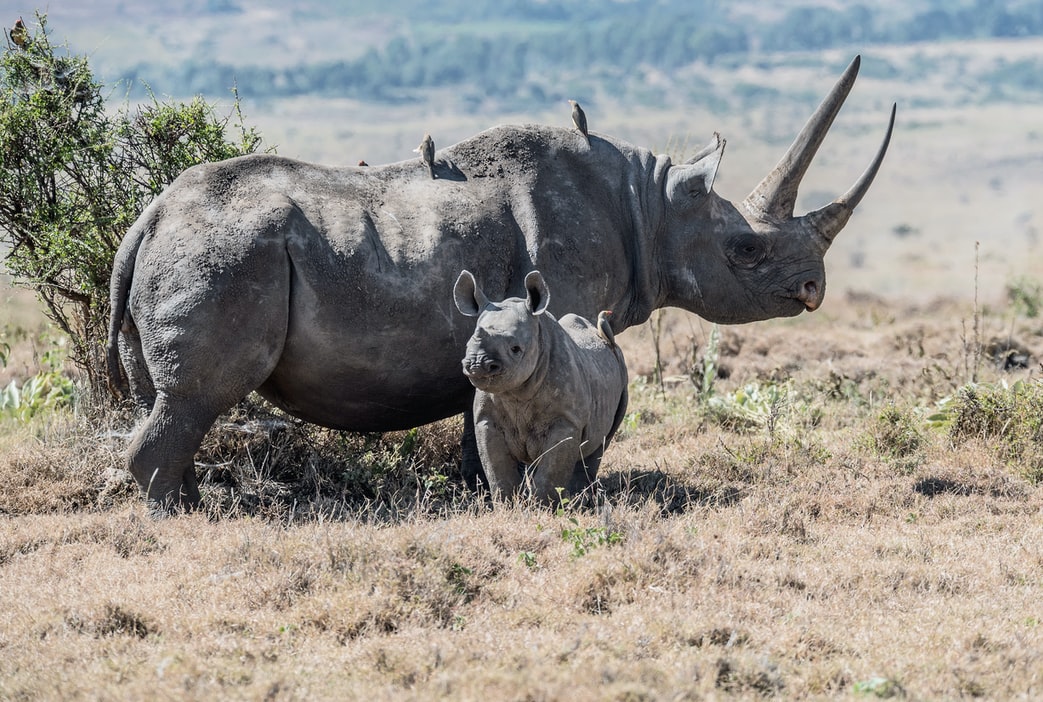Animals
Elite Dog Unit Trained To Protect Wildlife Has Saved 45 Rhinos From Poachers During Lockdown
A team of elite trained dogs trained to protect wildlife in the region remain hard at work during lockdown, and have saved 45 rhinos from poachers.

(TMU) – With countries across the world facing lockdown measures, a massive swathe of legal economic activities have ground to a halt – and this is true just as much in South Africa as in other countries.
Poachers have exploited the absence of humans on South Africa’s game reserves and the virtual stoppage of the safari business to stalk the area and continue hunting down wilderness. According to ITV, at least nine rhinos have been killed since lockdown measures were introduced in mid-March.
However, a team of elite trained dogs trained to protect wildlife in the region remain hard at work, and have saved 45 rhinos from poachers, reports the Daily Mail.
The pack of dogs is drawn from numerous breeds, ranging from beagles to bloodhounds, but each dog has been able to make a major contribution to protecting the endangered species from the poachers.
Rhino populations are in critical danger. The Southern African Wildlife College has introduced specially trained tracking dogs to their anti-poaching efforts.
Posted by ORIJEN South Africa on Wednesday, August 21, 2019
The dogs are trained from birth and conditioned to tolerate the pressures of actual operations before they are released in the field, which usually takes place when they reach 18 months old.
Photos of the elite team of dogs in action at the Southern African Wildlife College (SAWC) in Greater Kruger National Park were recently shared by Sean Viljoen, a 29-year-old filmmaker based in Cape Town.
Viljoen owns a production company called Conservation Film Company, which works with filmmakers across the globe to depict the work of conservationists through cinematic storytelling.
Johan van Straaten, the dog master at the SAWC’s 9 unit, explained:
“The data we collect for this applied learning project, aimed at informing best practice, shows we have prevented approximately 45 rhinos being killed since the free tracking dogs became operational in February 2018.
“In the areas where the Southern African Wildlife College patrol, the success rate of the dogs is around 68 percent using both on and off leash free tracking dogs, compared to between three to five percent with no canine capacity.”
Want to know more about #RhinoDogs? Read our interview with Johan van Straaten, Dog Master: K9 Protected Area Integrity, Southern African Wildlife College, and Elise Serfontein, Founder, Stop Rhino https://t.co/eCkhDt0VuI: https://t.co/shg1d71SbW pic.twitter.com/kFGjDvtmga
— IntlRhinoFoundation ? (@RhinosIRF) December 8, 2018
With roughly 80 percent of the world’s 29,000 rhinos left in the world being located in South Africa, poachers consider the region to be a target-rich environment, where poachers can pursue their dreams of getting rich quick by murdering the helpless creatures and selling their remains to the highest bidder.
And with the rhino’s prized horn fetching up to $100,000 per kilogram (2.2 lbs), poachers are able to make between $100,000 to $350,000 from just a single horn. Many of the buyers come from Asia, where the horns are typically ground into a powder and used in traditional medicine in countries like China and Vietnam. In the local black market, however, prices hover at around $3,000 per pound.
And with the Greater Kruger National Park Area being a vast open habitat, the rapid mobility of dogs make them perfectly suited for cracking down on the grisly trade.
White #rhino, #Kruger National Park, South #Africa | © Jim Zuckerman https://t.co/x12WUZxvoD pic.twitter.com/a95oGueQXz
— ExploreTraveler (@exploretravel1) April 16, 2019
Van Straaten continued:
“The game changer has been the free tracking dogs who are able to track at speeds much faster than a human can, in terrain where the best human trackers would lose spoor.
“As such, the project is helping ensure the survival of southern Africa’s rich biodiversity and its wildlife including its rhino which have been severely impacted by wildlife crime … Over the past decade over 8,000 rhinos have been lost to poaching, making it the country hardest hit by this poaching onslaught.”
The team of dogs include Belgian Malinois, Blue Ticks, Foxhounds, and Texan Black-and-Tan Coonhounds. The pups are trained in various counter-poaching tactics such as detection, free tracking, incursion, patrol and apprehension.
Prior to the college acquiring the dogs, anti-poaching enforcement teams only managed to catch 3 to 5 percent of known poachers, according to National Geographic. The new K9 unit allowed the rate to improve tenfold to an estimated 54 percent.
With this crack team of dogs on task, rhino conservationists have been able to minimize the harm criminals do to the massive park’s wildlife – while keeping poachers on the run.
Typos, corrections and/or news tips? Email us at Contact@TheMindUnleashed.com
